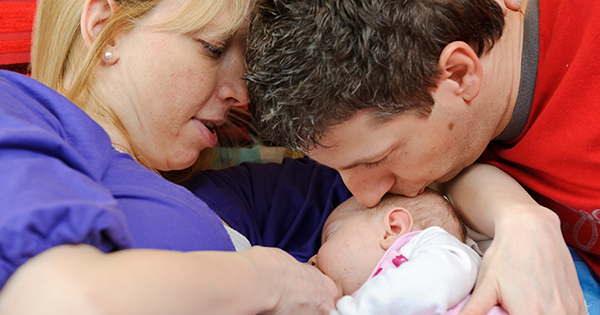Breastfeeding horror stories—about pain, milk supply issues, or the baby not gaining enough weight— abound, but they make me sad because most frequently they are preventable. That’s why my number one piece of advice to new moms is to line up your resources (a Board Certified Lactation Consultant) before your baby is born and get help as soon as there’s even a hint of an issue.
Here are some tips:
Breastfeeding should not hurt! No matter what anyone tells you, breastfeeding only hurts if something is wrong and can often be fixed by a simple change in position or help with the way your baby is latched. Plus, if you’re having pain, it’s very possible that your baby isn’t getting as much milk as he needs. This can lead to very frequent, unsatisfying feedings causing either a very fussy or overly lethargic baby, as well as a decline in your milk supply.
In the very early weeks, it is very common for newborns to fall asleep before they can get a full feeding. Having a partner or helper stimulating baby’s skin, rubbing his feet, moving his arm, or even applying a cool cloth to his head can help keep baby awake and actively drinking. Changing his diaper can also be a great way to stimulate baby so that breastfeeding can be resumed. Mom can also compress her breast while baby is nursing, to give baby a more plentiful flow of milk, which reminds him to drink rather than sleep.
Newborns often like to “cluster feed” in the middle of the night. This is because they are nocturnal—remember during pregnancy when baby was doing somersaults while mom was trying to sleep at night but hardly moved at all in the afternoon? It can help to keep baby’s room dark and quiet at night and expose him to light during the day when he’s awake to help him establish his circadian rhythms. By six weeks or so, baby is usually waking just to feed, quickly returning to sleep in the middle of the night.
Having a baby—whether he’s your first or your fifth—can be lonely and isolating at times. Baby and Me groups can help introduce you to other new parents in your area as well as give you a forum in which to discuss common questions. Consider joining me, along with other new parents and their babies, to navigate this exciting time in your life and find your “parenting voice.” We meet regularly to discuss feeding, sleeping, developmental milestones, returning to work or stay-at-home parenting, post-partum recovery, and anything else related to new family life.
Learn more about our “Babies & Beyond” program, at Parents Place in Palo Alto >
Cherie Tannenbaum, a Family Nurse Practitioner, Board Certified Lactation Consultant and Parent Educator at Parents Place in Palo Alto has been helping new parents make some of their first very important parenting decisions for over 30 years. She can be reached at [email protected] or 415-828-1700.



